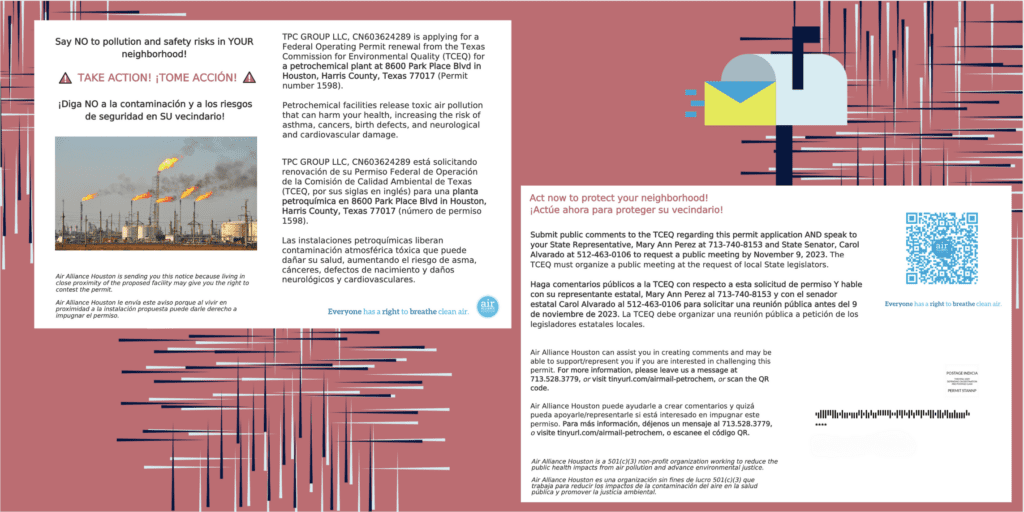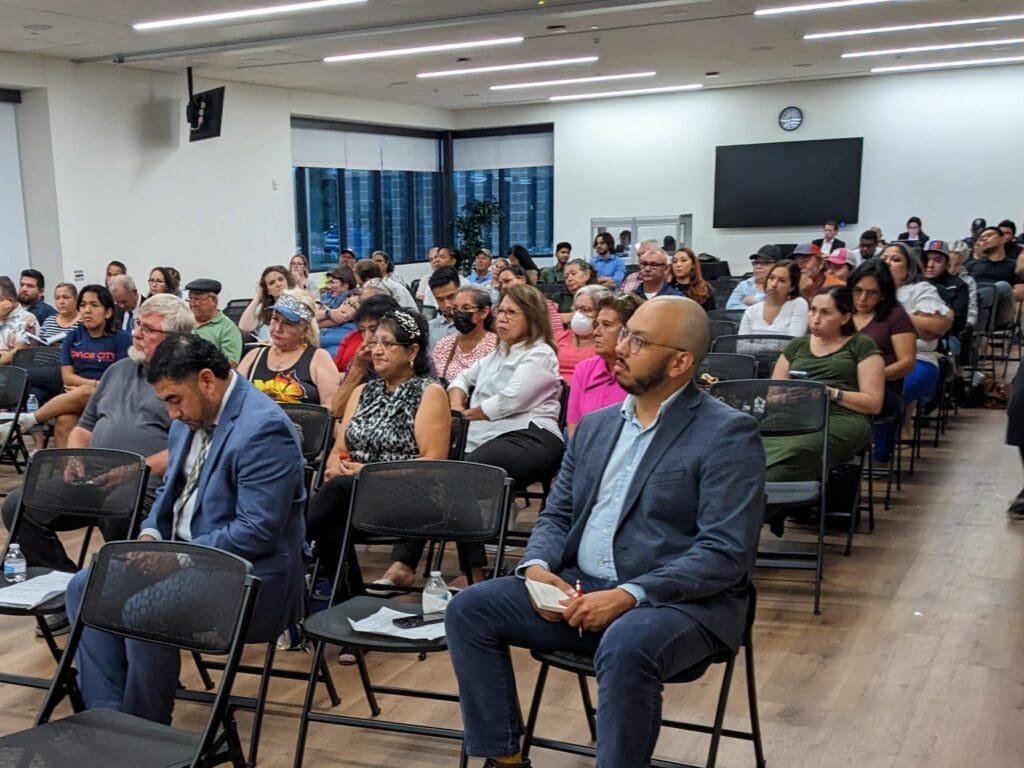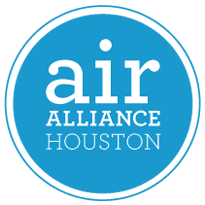
Anthony D'Souza - Research and Policy Coordinator
Editors: Dr. Inyang Uwak, Cassandra Casados-Klein
Since its launch, our permit tracking and community awareness tool, AirMail, has been a great success in filling the gap in the Texas Commission on Environmental Quality (TCEQ)’s less than adequate community engagement and outreach.
AirMail gives us the ability to automatically track industrial permits submitted to the TCEQ. As problematic permits appear, we utilize automated direct-mail campaigns to notify nearby residences about the application, the concerns with air pollution, and how they can take action. Problematic permits can take the form of industry being dangerously close to residences or sensitive use areas, or a facility with a polluting track record wanting to expand their operation, and more.
The reluctant regulator, TCEQ, often sends industry jargon-heavy notices, leaving residents feeling discouraged from attending. AAH supplements their process by breaking down information into accessible terms, sending AirMail postcards, emailing Action Alerts, and working with other community focused organizations to lead efforts to protect a community’s air quality.

To date, we have mailed over 85,000 postcards to raise awareness of over 20 different industrial facilities seeking air permits near residential communities that are almost always working-class communities of color.
Our public outreach has had a strong impact. Postcard recipients have contacted AAH for further support in contesting permits and have submitted numerous online comments with personal accounts of industrial negligence and calls for stronger regulation. We’ve also encouraged residents to contact their elected officials since a public meeting requested by a state legislator must be granted by the TCEQ. These public meetings are vital opportunities for residents to address the facility’s owners/operators and the TCEQ directly, voice their concerns, and demand accountability. Successfully obtaining public meetings for air permits was a rare occurrence prior to AirMail. Over the last year alone, public meetings on air permits initiated by an AirMail campaign have successfully been granted and held 8 times.


Surveys conducted by AAH at a couple of these public meetings demonstrate that at least 65% of the attendees heard of the meeting either directly through our AirMail postcard or indirectly from someone who received it. Often, attendees walk into the meeting with a postcard in hand. These statistics demonstrate that residents are engaged and passionate about their neighborhoods and keeping their air clean, but, without AirMail, the TCEQ’s public notification process fails to notify them adequately.
Here’s what’s new in AirMail
AirMail has changed the game when it comes to awareness of local permits, but it can do even more. This summer, we worked with our co-creators, January Advisors, to add even more functionality. All updates were made to give organizations as well as community members greater flexibility and ease of power in sharing information.
We extended our scope
- We can now send postcard notifications on problematic permits to our neighbors in Fort Bend, Montgomery, Galveston Counties, and more.
- Ability to display permit notices for all of Texas with statewide population estimates.
You can now sign up to receive weekly emails with permit applications for selected counties of interest.
You can now share a search and a map with your social networks via a quick link or download.
Advancing permit opposition work all across the Gulf Coast
In August, we co-hosted an AirMail Gulf Coast Training with January Advisors and invited participants working in community organizations from Corpus Christi to New Orleans to receive in-depth guidance on the usage and capabilities of AirMail. We walked them through tracking and prioritizing permit notices by researching the industry’s background, utilizing resident addresses for postcard campaigns, and developing templates for postcards. In addition, we also shared examples of how we have used AirMail over the past year to organize communities against problematic industries: from the discovery of their permit to mass awareness raising, all the way to a public meeting (and hopeful withdrawal of the permit). We are now supporting partners from the training to experience the power of AirMail themselves by sending localized postcards about a problematic polluter of their choice. We are also in talks with partners in Louisiana about how to build a version of AirMail for their state to combat the rapid and indiscriminate expansion of petrochemicals and other pollution sources in Cancer Alley and the River Parishes.

Reporters, researchers, legislative officials, community partners and advocacy organizations have all demonstrated interest, usage, and benefit from interacting with the tool and its data metrics and linkages to platforms and databases (like those maintained by TCEQ) that have been historically inaccessible. In addition to shining a much-needed light on active permit-seeking facilities and providing guidance for further public engagement, AirMail is an accessible springboard to introduce individuals to Texas’ complex industrial permitting landscape while promoting further exploration and research.
